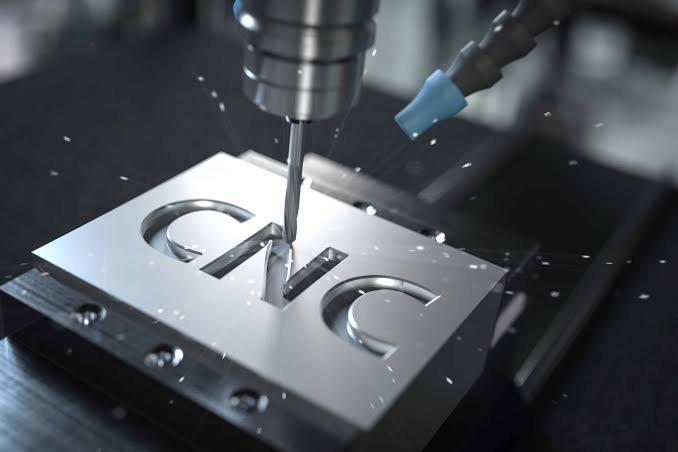Rapid CNC Machining and polypropylene machined parts

Table of Contents
- Introduction
- What is rapid CNC machining?
- Advantages of Rapid CNC Machining
- Applications of Rapid CNC Machining
- Polypropylene Machined Parts
Rapid CNC machining is quite literally a rapid manufacturing process in which computer numerically controlled machines manufacture parts from solid materials such as plastics or metals. Extremely accurate, it is hence most suitable for prototyping or small production runs in which speed is of the essence and accuracy is paramount.
Need something special? Custom parts in no time—that’s Rapid CNC Machining. Precisely manufactured parts at speed and without delay transfer all digital designs into reality. It’s the smart shortcut between thought and form.
Rapid CNC machining is a process that will cut down the time taken by high-speed machines that are well controlled by computers in cutting and shaping the metal and plastic. This will be perfect for prototyping or other low quantities of parts, allowing for very high precision, very helpful in speeding production.
What is rapid CNC machining?
The advanced manufacturing system Rapid CNC Machining enables quick production of accurate pieces by controlling automated machines that process metals as well as plastic and composite materials. A machine cell operates independently as CNC technology executes commands stored in digital files typically created from CAD software for producing accurate parts with negligible material disposal. The manufacturing process works efficiently to create prototypes and small quantities as well as complicated parts at speed.
Advantages of Rapid CNC Machining
This manufacturing approach provides worldwide industries with numerous advantages that make it their preferred selection. These benefits represent some of the principal advantages that rapid CNC machining provides:
1. High Precision and Accuracy
- The precision specifications of CNC machines enable them to deliver very narrow mechanical tolerances.
- High accuracy standards from CNC machines remain crucial for aerospace units as well as automotive operations and medical contexts.
2. Faster Production Times
- Rapid CNC machining functions faster than conventional machining by defining quick production durations that suit urgent situations.
- Prototyping speed rises dramatically by using this technology, which speeds up the development route between concept and prototype-ready products.
3. Cost-Effective for Low Volumes
- The manufacturing process of low- to medium-volume production items becomes more affordable with this method compared to other techniques.
- The absence of expensive molds together with tooling systems makes this method affordable for minimal production quantities.
4. Material Flexibility
- It permits the CNC machine to be used for many materials, from metal through plastics to composites.
- It finds application in various industries, including car manufacturing and production of medical equipment.
5. Minimal Waste and Sustainability
- CNC machines operate with high precision that produces small material waste, thus leading to sustainable operations.
- Multiple industries pursue green manufacturing methods, and CNC machining provides an effective solution for this purpose.
Applications of Rapid CNC Machining
Rapid CNC machining is first and foremost used for prototypes, as businesses can leverage the technique to design and test these samples instead of making them before jumping into full-scale production. In this way, the engineers can iterate their ideas and ensure a functional and design-compliant final output. Industries that require precision and creativity in all their products, such as aerospace, automotive, and consumer electronics, find this process most beneficial.
Personalized manufacturing is one of the areas in which CNC machines are widely used. From producing a handful of items to creating single-unit custom-made parts, CNC machines can manufacture pieces on demand in a very high-quality, custom-made format.
CNC Machined Parts from Polypropylene
Polypropylene (PP) is a widely used thermoplastic polymer that is being recognized as having very low density, excellent resilience to chemicals, and good impact strength. CNC machining is getting more popular as a means of creating precision polypropylene machined parts used in diverse industries.
Why should you choose polypropylene?
- Resistance: It is resistant to many chemicals, and so polypropylene is used in applications wherein service under extremely severe conditions is a necessity.
- Less Weight: The other advantage is less weight; it gets into parts where weight tends to be a disadvantage in applications.
- Incredibly Versatile: Polypropylene can be machined into complex profiles, thus making it suitable for the manufacturing of custom-defined parts.
- Economy of Cost: PP is an inexpensive material and fits right into any production for prototyping and small quantities.
Polypropylene machined parts can be replicated in large volumes for different applications in packaging, automotive, and medical purposes where strength and flexibility come into play. Thus, medical parts like the components for the connector, valve parts, or even covering their enclosure can be machined from PP.
Conclusion
Fast CNC machining is definitely a revolutionary way of manufacturing something by incredibly precise production with always-timely, fast production. This will be a great revolution to the whole industry for custom machining of parts or prototypes and low-run productions for tooling. Moreover, developments concerning CNC machining materials—most recently polypropylene—keep broadening horizons for possible applications.




